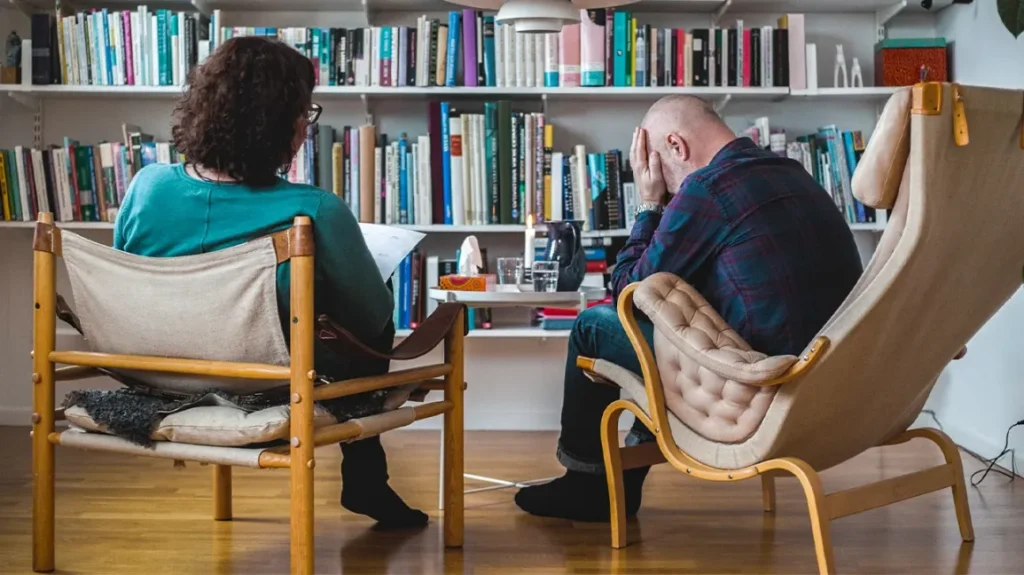
Living in Brooklyn means being surrounded by energy, culture, and endless opportunities. But even in such a vibrant place, life can sometimes feel heavy. Stress, anxiety, and depression don’t disappear just because you’re in a busy city—they can actually feel louder. When everyday challenges start to pile up, having the right support can make all the difference.
That’s where finding the best therapist in Brooklyn comes in. Therapy isn’t just about talking through problems; it’s about having a safe space where you feel heard, understood, and guided toward a healthier and more balanced life.
Why Therapy Matters
Everyone has moments when life feels overwhelming. Maybe it’s stress from work, difficulties in relationships, or struggles with self-esteem. Sometimes, it’s hard to open up to friends or family because you don’t want to feel like a burden. That’s where therapy helps—it’s a space just for you.
Therapy gives you tools to handle challenges, but it also helps you understand yourself on a deeper level. Instead of just “getting through” tough times, therapy helps you grow through them.
How a Therapist Can Help You
A therapist isn’t there to tell you what to do or judge your choices. Instead, they’re there to walk alongside you and help you discover your own strengths.
Benefits of Therapy
- Feeling truly heard – A space where your feelings are valid and taken seriously.
- Practical coping strategies – Techniques you can use in daily life when things feel overwhelming.
- Stronger relationships – Learning how to communicate better and set healthy boundaries.
- Personal growth – Therapy isn’t just about healing; it’s also about building confidence and resilience.
What to Expect in Your First Sessions
Starting therapy can feel intimidating, but most people find the process comforting once they begin. Your first session usually involves getting to know your therapist and sharing what brought you there. You don’t have to have all the answers or the “perfect way” to explain your struggles—your therapist will guide the conversation.
Over time, sessions become a space where you can explore emotions, learn new skills, and notice gradual shifts in how you think and feel.
Approaches Therapists Use
Brooklyn therapists use different methods depending on your needs. Some of the most common include:
Cognitive Behavioral Therapy (CBT)
Helps you challenge negative thought patterns and replace them with more balanced ones.
Psychodynamic Therapy
Explores how past experiences shape current feelings and behaviors.
Interpersonal Therapy (IPT)
Focuses on improving relationships and easing emotional struggles tied to them.
Mindfulness-Based Therapy
Encourages presence, breathing techniques, and calm reflection to reduce stress.
Each approach has its benefits, and the right therapist will adjust their style to fit you—not the other way around.
Finding the Right Therapist in Brooklyn
With so many therapists available, it’s easy to feel overwhelmed. Here’s how to make the search more manageable:
- Know what you need: Are you looking for help with anxiety, depression, trauma, or relationships?
- Check specializations: Many therapists list areas of focus that may align with your goals.
- Think about logistics: Location, availability, and whether you prefer in-person or online sessions matter too.
- Trust your comfort level: The right therapist will make you feel safe, respected, and supported.
The Importance of Compassion in Therapy
What makes therapy powerful isn’t just professional training—it’s compassion. A compassionate therapist listens without judgment and creates a space where you feel accepted exactly as you are. That’s often where the real healing begins.
In Brooklyn, many therapists combine expertise with genuine empathy, helping clients not only manage mental health challenges but also rediscover joy and confidence in daily life.
Therapy’s Impact Beyond the Session
One of the best parts of therapy is noticing how the work you do in sessions shows up in your everyday life. With time, you might find that you:
- Handle stressful moments more calmly.
- Communicate more openly with family and friends.
- Feel more motivated to pursue goals.
- Experience a stronger sense of peace and confidence.
The benefits extend far beyond the therapy room—they ripple into every area of your life.
Everyday Practices to Support Your Mental Health
Therapy is powerful, but pairing it with small, consistent habits can make your healing journey even stronger. Some ideas include:
- Move your body – Even short walks can lift your mood.
- Eat mindfully – Nourishing foods support both your body and brain.
- Practice mindfulness – Breathing exercises or journaling can help calm racing thoughts.
- Stay connected – Share time with people who make you feel supported and cared for.
- Express yourself creatively – Art, writing, or music can release emotions in healthy ways.
Breaking the Stigma
Many people hesitate to reach out for therapy because they worry about being judged or seen as “weak.” But in truth, seeking help is one of the bravest things you can do. Therapy is not a sign of failure—it’s a sign of strength and self-awareness.
By taking that first step, you’re showing commitment to your well-being and giving yourself the chance to live a fuller, healthier life.
Conclusion
Life in Brooklyn can be fast-moving and demanding, but your mental health deserves attention too. Working with the best therapist in Brooklyn can help you navigate challenges, heal from past struggles, and grow into a stronger version of yourself.
If you’ve been thinking about reaching out, consider this your reminder: you don’t have to go through tough times alone. The right therapist can offer the compassion, guidance, and tools you need to move forward—and that first step may be the start of a brighter, healthier chapter in your life.


